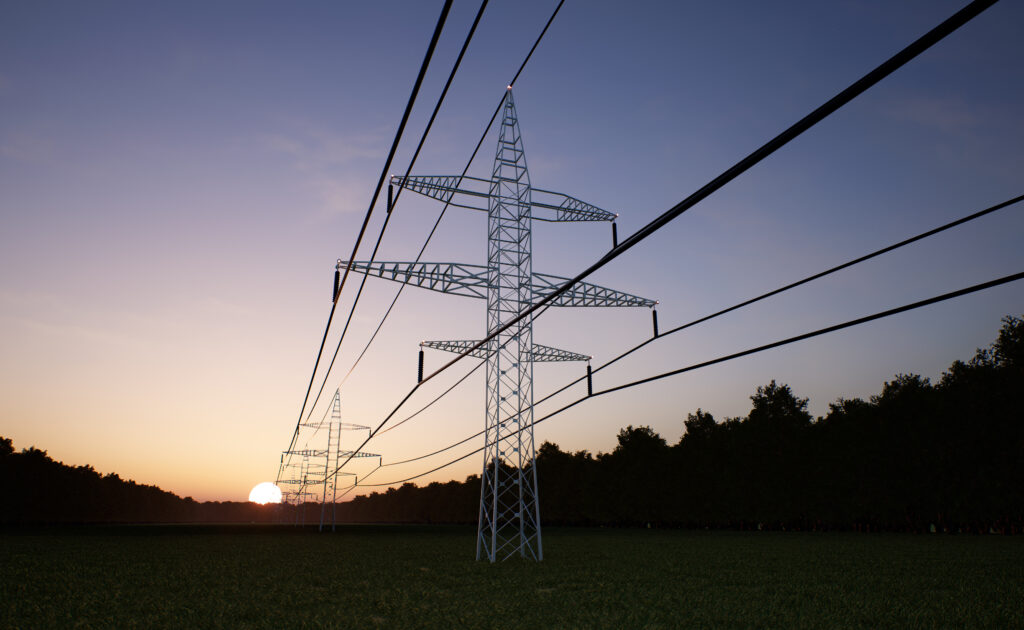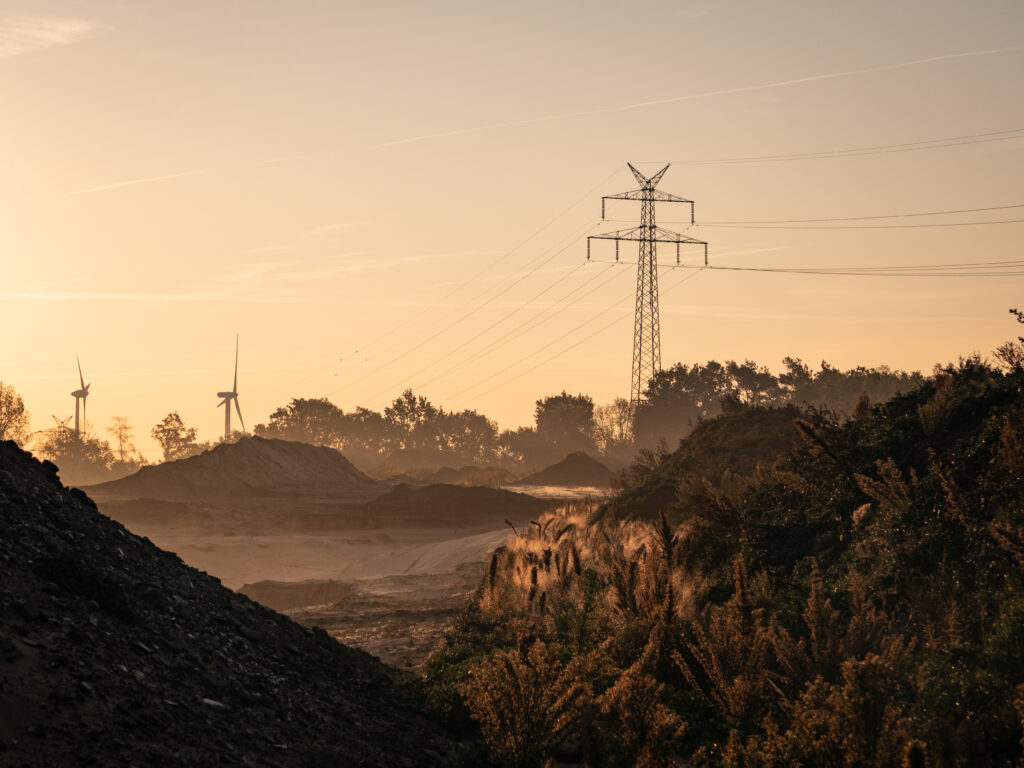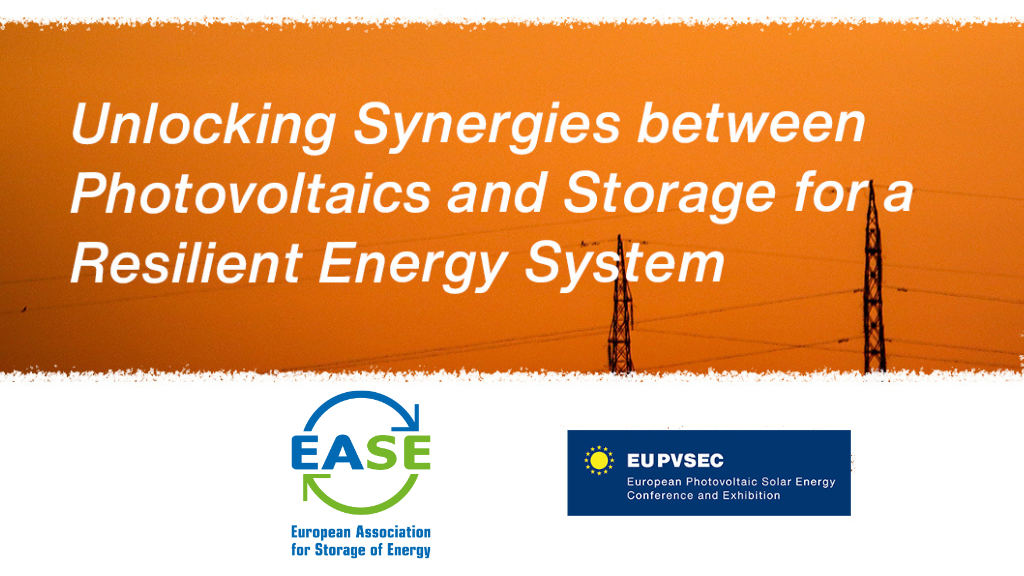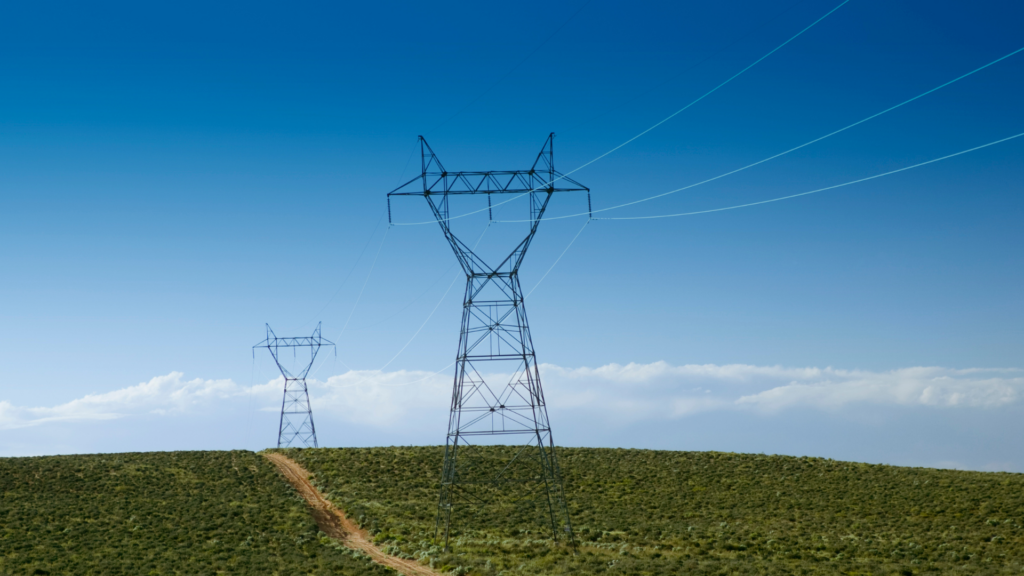28.11.2019 / News
How Industry and Policymakers Can Support the Islands Decarbonisation Agenda
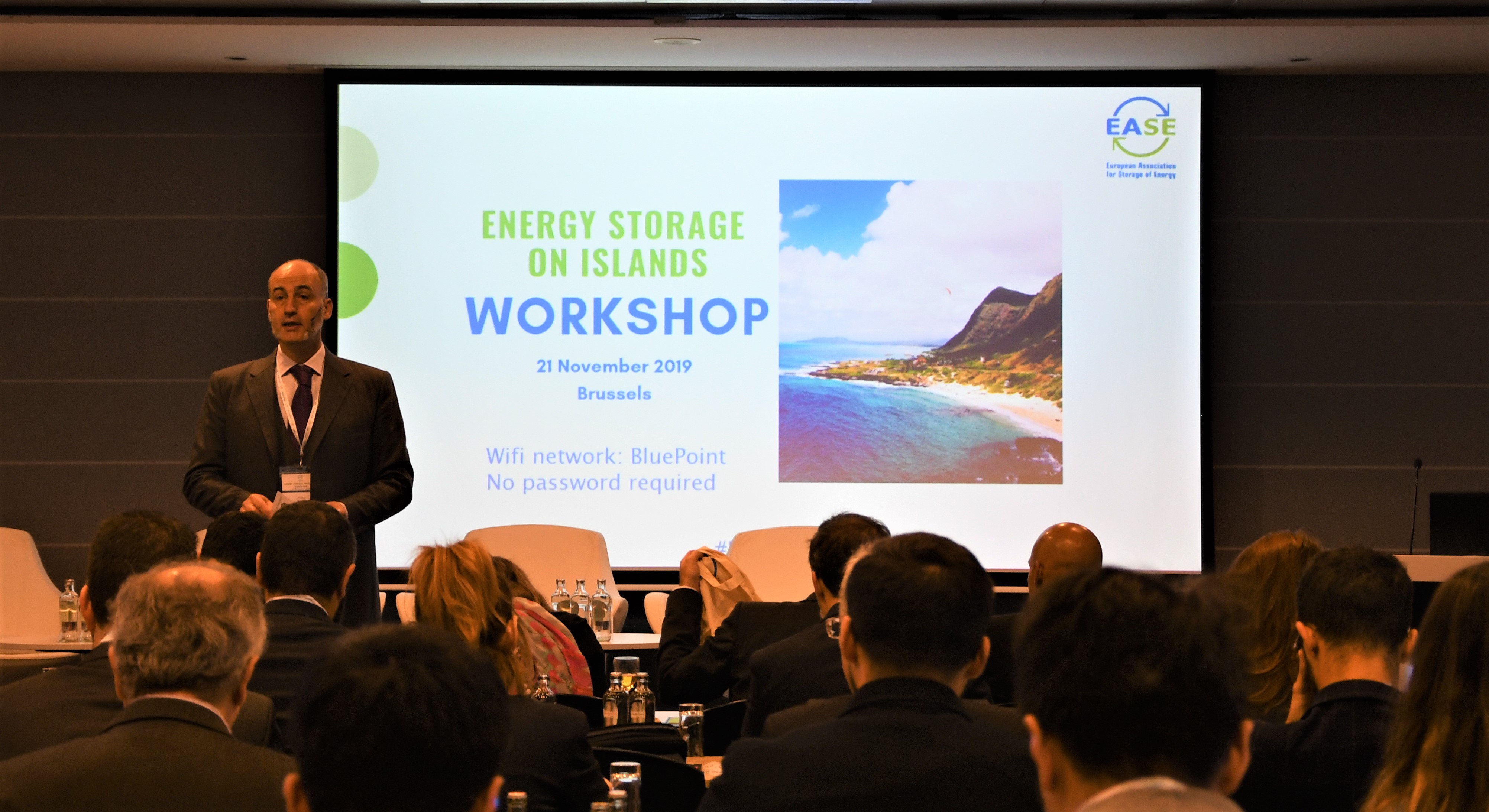
Islands face unique challenges in terms of ensuring a secure and cost-effective energy supply. Many islands have been early adopters of renewables and have seen some of the world’s first deployments of energy storage projects. These projects not only showcase the diversity of storage technologies and applications, but also highlight some of the most pressing challenges when it comes to the energy transition and deep decarbonisation.
On 21 November, over 80 participants met during the EASE Energy Storage on Islands Workshop to learn about the latest advances in energy storage technologies, assess the energy storage applications and business cases on islands, and propose policy recommendations to ensure a faster roll-out of innovative solutions to support the island decarbonisation agenda.
The workshop kicked off with a focus on the main challenges and opportunities for decarbonisation of islands, both from a policy and technical point of view. Gianni Chianetta, Director of Greening the Islands, noted that this is the perfect time to focus on the role of storage, since the 2017 Political Declaration on Clean Energy for EU Islands is expected to be updated under the Croatian Presidency of the EU in 2020.
Looking into the projects – is there a “one size fits all” solution?
Each island has unique characteristics which makes it impossible to develop ‘one size fits all’ solutions from a technical or strategic point of view. For each island, a holistic approach must be developed to ensure security of supply. This strategy, built upon consistent planning and reliable implementation, must take into account current and planned capacity of generation (both thermal generation and renewables), storage, demand-side response, and interconnections.
Energy storage to the rescue!
Energy storage systems are uniquely suited to supporting decarbonisation of islands, whatever their characteristics. Speakers explored cutting-edge storage projects from around the world, covering Bermuda, Greece, Italy, France, the Canary Islands, Orkney Islands (Scotland), and Taiwan, among others. Different storage solutions – li-ion batteries, pumped hydro storage, flywheels, supercapacitors, and hydrogen – have proven their ability to cost-effectively provide a variety of services, for instance helping reduce fossil fuel use when coupled with diesel generators or drastically cutting renewables curtailment. Storage can also provide key grid services such as spinning reserve to prevent load shedding and blackouts.
But is there something that needs to be improved?
However, without proper market and regulatory frameworks, it can be difficult to build a robust business case for storage. This can be especially true in deregulated islands such as the UK and Ireland, where the storage business case depends on ‘stacking’ multiple revenue streams. In most cases, the key barrier to deployment of energy storage projects on islands is not technology performance, but rather related to lack of enabling policies, long-term investment certainty, and/or social acceptance.
The way forward
After presentations and discussions focused on technologies, applications, and business cases, as well as policy and regulation, participants divided into four Focus Groups to elaborate recommendations to speed up deployment of energy storage projects on islands and support the transition to decarbonised island energy systems.
The recommendations elaborated by the workshop participants will be shared with policymakers as well as our partners at Greening the Islands and Clean Energy for EU Islands. EASE will continue to work on supporting the deployment of energy storage projects on islands in order to meet their ambitious decarbonisation targets. We will prioritise the main barriers and action points identified during the workshop, and will seek to engage more closely with island authorities and key stakeholders to address the big challenges ahead.

